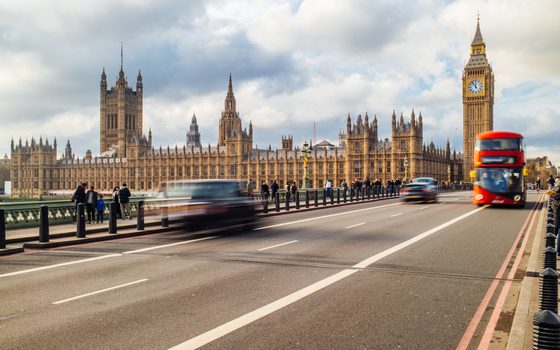Nothing personal
Replacing the personal tax allowance with a Weekly National Allowance
11 March 2019
On 1 April 2019, the government will complete one of the most expensive and regressive public spending projects of the 21st century so far: a decade-long expansion of the personal allowance of income tax. The personal allowance will rise to £12,500, protecting personal incomes from the basic rate of tax – and in some cases the higher rate of tax as well. Her Majesty’s Revenues and Customs (HMRC) estimate the scheme to be worth an eye watering £107 billion in forgone tax receipts for the 2018/19 tax year alone: equivalent to 14% of total government income and worth more than the departments for defence, local government and transport combined. This cost is set to rise further in 2019/20 with the increase in the threshold. New NEF modelling also shows that the allowance is worth significantly more for higher income households. In 2019/20, the allowance will be worth £6,500 in reduced tax liabilities for the 10% highest income families, but worth just £600 for the poorest 10%’.
New giveaways to the UK’s highest income households in the tax system have coincided with social security reforms that have hit the poorest families hardest. Significant reductions to disposable income for the UK’s poorest families have been driven by large-scale cuts such as the working age benefit freeze and the two child limit to payments under working tax credits, housing benefit and universal credit. The flagship transition to universal credit itself is also failing. Its implementation has been incompetent, flawed and harmful. And its design is internally incoherent given its own stated objectives of increasing simplicity, reducing costs and improving work incentives. Yet despite consensus growing over the scale of failings in universal credit and the lack of resources in the social security system as a whole, too little work has been done on how to structurally improve the UK’s safety net in a fundamental way.
A weakened and threadbare social security system also represents heightened risk to the economy as a whole. Monetary policy – altering the cost of credit in the economy – is becoming increasingly ineffective as a recession fighting tool. At the same time, the future response from discretionary fiscal policy – actively changing tax and spending – is uncertain given continued ill-judged government commitments to austerity. Social security would normally be a first line of defence during economic downturn, maintaining a minimum level of spending in the economy even if unemployment starts to rise. But, given the lack of prospect for monetary or fiscal interventions, at the next recession there is a danger it may be among the last lines of defence as well. With the risk of a no deal Brexit growing, the need to ensure social security has the strength, breadth and generosity to help the economy navigate the next recession safely is now an urgent priority.
The main contribution of this policy paper is the proposal that government should create a ‘Weekly National Allowance’ by repurposing resources currently foregone every year through the personal allowance of income tax. We posit that this reform is both implementable on a relatively short-time frame, but nonetheless capable of meaningfully improving the progressivity of the UK’s tax and benefit system as a whole. It also has the potential to significantly expand the country’s recession fighting toolkit. However, the policy is not intended as a silver bullet to meet all, or even most, of the UK’s short and long-term challenges with respect to tax and social security. We therefore present this proposal as one brick in the road to a radically reformed system as a whole
The two pillars of a Weekly National Allowance would be:
- Replace the personal allowance of income tax with a weekly payment equal to the value of tax that would otherwise be paid on the full £12,500 of personal allowance. For 2019/20, this payment would be worth £48.08 per week in England, Wales and Northern Ireland, or £2,500 per year. In Scotland, the 19% income tax band introduced in 2018/19 means that the cash payment would be set at £45.68, worth £2,375.15 per year. Eligibility for the payment would be extended to everyone over the age of 18 with a UK national insurance number. New payments could be administered by HMRC and would be tax free, but they would also score in the means testing of other benefits. The basic rate of income tax (or starter rate in Scotland) would then be applied to the first £1 of most forms of income.
- Restore child benefit to its real terms 2010/11 value (in other words reverse the effect of freezes to child benefit since 2010) and combine this with the new cash payment above to complete the ‘Weekly National Allowance’.
This cost-neutral and easily implementable policy swap would be highly distributive, lifting 200,000 families out of poverty and shift the £8bn currently spent on tax allowances for the 35% highest income families to the remaining 65% of families. It would also would significantly improve the UK’s recession fighting toolkit.
This brief policy paper marks the first in a broader programme of work being conducted at NEF over the coming months and years, which will examine personal tax allowances, social security and public service provision as three closely interrelated schemes. As part of this work we plan to make a number of cross-cutting recommendations for government to evolve and strengthen the UK’s social insurance and security systems to meet the challenges of the 21st century. This paper and it’s recommendations are therefore not intended as the final word and we hope it instigates further debate.
Campaigns Living income







